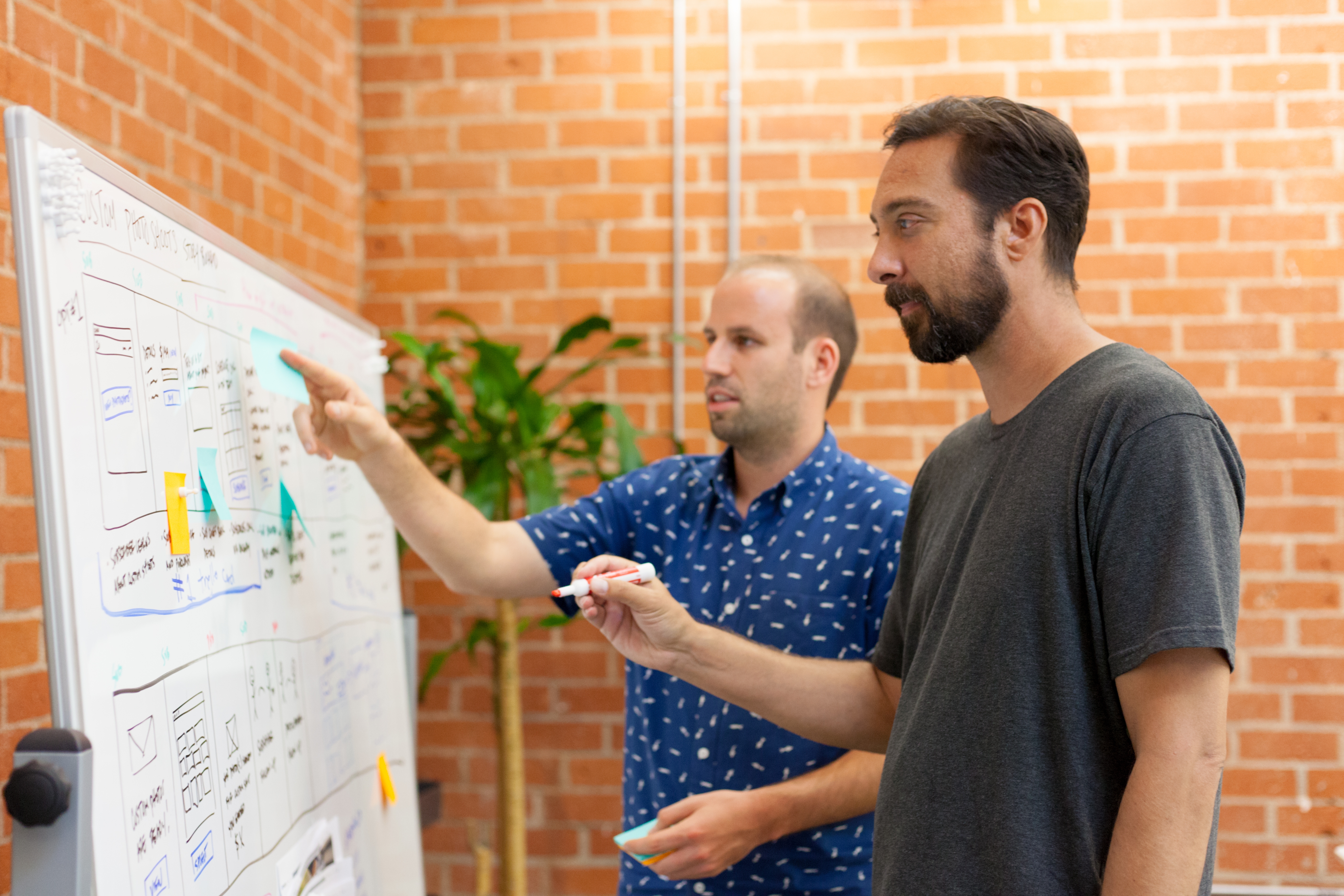
As a Product Manager and top interviewer at Google, the founder of a venture-funded startup, and a product lead here at Gusto, I’ve interviewed several hundred candidates for PM roles. In this post, I will give you some insight into what I look for in applications and interviews.
Keep in mind that this is just my perspective, and other companies and interviewers may look for slightly different things. With that said, this post will give you a good place to start if you want to apply for one of Gusto’s open PM roles.
Before the Interview
-
Update your LinkedIn profile. When it’s an option, I always click on the LinkedIn profile instead of looking at the resume. Hiring managers literally review hundreds of candidates, and it’s much faster to do so with a consistent format.
-
Keep your resume short and to the point. When looking at a resume, I’m scanning for very few things. I want to know where you worked, in what role, and for how long (years & months are better than dates). When describing your work, keep it as simple and factual as possible. Don’t focus on the technologies (“Word”, “HTML”) or processes (“scrum”, “agile”) you’re familiar with – I want to know what parts of the product you were responsible for and what the results were.
-
Write a company-specific cover letter. Few people write cover letters these days, but a well-written cover letter can really stand out. The cover letter doesn’t have to be long, but the key is to focus on the company you’re applying for. Don’t write a cover letter about yourself (that’s what the resume is for); tell me why you’re excited about this particular role. This means that you can’t just write one cover letter and tweak it for each company, but that’s why a good cover letter is such a positive signal.
During the Interview
-
Make it conversational. Your goal in any interview is to make the interviewer feel like they’d want to work with you. That’s it. With that in mind, you should try to make the interview feel as much as possible like a good, productive meeting with a peer. Imagine you’re tackling a real problem and working on it together with the interviewer. Don’t treat it as a test you’re being judged on.
-
Drive the interview. While you want to keep it conversational, you still want the interviewer to feel like you’re taking ownership. A great way to do that is to lay out a clear framework for how you’re going to approach the problem. Another way is to actively manage your time. Ask the interviewer how long they want to spend on any given section, then make sure you get to an answer in the time allotted.
-
Ask questions to clarify the problem. Product interviewers often deliberately leave the initial question vague, to see if the candidate can narrow in on the heart of the problem. A key mistake is to jump straight into answering the wrong question, instead of asking clarifying questions first. To avoid this, a good tactic is to keep asking “why?” This has the added advantage of giving you time to think about your answer while the interviewer explains.
-
Take a step back. Product Managers are expected to have a very broad and cross-functional view. Think about every external stakeholder and internal team that might be impacted. Question the assumptions behind the question. Why are they asking it? Is there a higher-level perspective?
-
Prioritize clearly. If asked to prioritize between features, you should first establish a clear framework to guide the conversation. My recommendation is to start with a simple cost-benefit (i.e. ROI), then break either side of the equation down as necessary. Some additional variables I like to introduce are reach (% of user base impacted), frequency of interactions, and risk (likelihood of success). Be careful not to overcomplicate it. It’s better to have a simple framework that you apply correctly than a complex one that leaves you and the interviewer confused.
-
Listen to prompts. Interviewers will often discreetly try to steer you if you’re going down the wrong path, so be very attentive whenever the interviewer chimes in. A prompt is usually not a deal breaker as long as you course-correct accordingly. To make sure you’re on the same page, you may want to repeat what they say or write down key points on the whiteboard.
After the interview
-
Ask for feedback. Often times your interviewers will have specific constructive feedback. This can be especially helpful at the early stages, where their feedback can help you do better in future rounds. Note that sometimes companies may not be able to give very detailed feedback due to liability concerns, but asking for it still lets you demonstrate a learning mindset. "I'd love to get your feedback on how the interview went. What are some things I could have done better?"
-
Don’t take it personally if you aren’t moved forward. Companies are generally more afraid of false positives (hiring someone bad) than they are of false negatives (not hiring someone good). This is especially true for successful, growing companies, who have a lot of candidates and where interviewer time is at a premium. Therefore, a single “meh” interview can be enough for them to pass, even if you might have nailed it under slightly different circumstances and done great in the role.
-
Know your market value. By the time a company gives you an offer, they’ve already invested a lot of time in finding you, and they’re highly motivated to close. You’ll want to understand how the company compensates. For example, a Google offer looks quite different than an offer from a small startup or mid-staged company. Are they cash heavy, equity heavy, or a mixture of both? Is cash or equity important to you at this time in life? What do you want? Work with the recruiter to get the offer package that aligns best to what you care about and are looking for.
I hope these interview tips help as you search for your next product role. At the very least, I can promise they will if you apply to one of Gusto’s open PM roles and end up interviewing with me :)
Best of luck,

